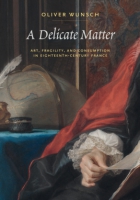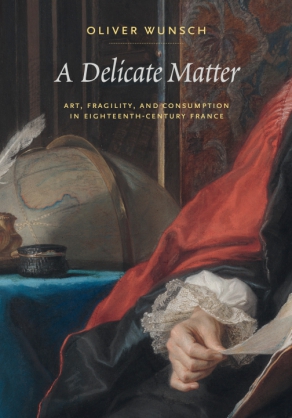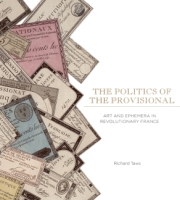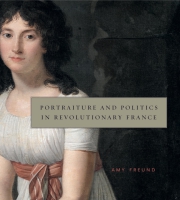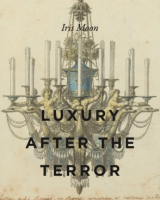A Delicate Matter
Art, Fragility, and Consumption in Eighteenth-Century France
Oliver Wunsch
“In an era of scholarship drunk on the sociological demystification of art, Oliver Wunsch’s book offers us that rare thing—a study of the social forces shaping art that illuminates aesthetic achievement.”
- Description
- Reviews
- Bio
- Table of Contents
- Sample Chapters
- Subjects
While studies of Rococo art have traditionally focused on style and subject matter, this book reveals how the physical construction of paintings and sculptures was central to the period’s reconceptualization of art. Drawing on sources ranging from eighteenth-century artists’ writings to twenty-first-century laboratory analyses, Wunsch demonstrates how the technical practices of eighteenth-century painters and sculptors provoked a broad transformation in the relationship between art, time, and money. Delicacy, which began the eighteenth century as a commodified extension of courtly sociability, was by century’s end reimagined as the irreducible essence of art’s autonomous value.
Innovative and original, A Delicate Matter is an important intervention in the growing body of scholarship on durability and conservation in eighteenth-century French art. It challenges the art historical tendency to see decay as little more than an impediment to research, instead showing how physical instability played a critical role in establishing art’s meaning and purpose.
“In an era of scholarship drunk on the sociological demystification of art, Oliver Wunsch’s book offers us that rare thing—a study of the social forces shaping art that illuminates aesthetic achievement.”
“Wunsch’s elegant, jargon-free writing deftly integrates voices from numerous primary sources and presents complex ideas with a remarkable balance of clarity and nuance.”
“Central to Wunsch’s remarkably tight-focused book is the suggestion that the perishability of art, long seen by art historians as little more than an impediment to research, is a subject of interest in itself; a feature, rather than a bug.”
“Wunsch describes the ongoing struggle to create desirable art objects that would resist the vagaries of fashion. With its organisation according to medium, the book unfolds under the sign of the material turn in the field of art history. Yet it is as much a book about the discursive work that arose in the wake of technical experimentation, as critics and artists sought to resist the pleasure of things, the thingness of artworks, and the delirium of consumption.”
“[Wunsch] shows that material impermanence is not just the bane of conservators, or a cause for regret, but deserves investigation as a cultural phenomenon in its own right. . . . A Delicate Matter succeeds in combining a meticulous discussion of visual and material forms with eighteenth-century philosophical reflection and wider sociocultural shifts. It is concise, tightly argued, beautifully designed and provocative”
“A Delicate Matter is an important contribution to the material history of eighteenth-century French art, and its focus on major artists, combined with its sharp assessment of the new social and economic dynamics governing the eighteenth-century art world, also makes it an essential reading for non-specialists, who will appreciate its clear and vivid prose.”
“This handsomely designed and illustrated volume is an original, concise, and brilliant study of the concept and nature of delicacy across four eighteenth-century French case-studies and an epilogue.”
“A lyrical and witty rereading of eighteenth-century French art that connects the popularity of physically fragile artworks—from cracking Watteau paintings to precarious Clodion terracottas by way of disintegrating pastel paintings and quixotic experiments with encaustic—to a nascent consumer culture dependent on ephemeral goods. Wunsch adroitly joins sophisticated technical analysis to a thought-provoking argument about the ways in which the market shaped artistic practice, art collecting, and aesthetic theory.”
Oliver Wunsch is Assistant Professor of Art History at Boston College.
List of Illustrations
Acknowledgments
Introduction: The Fragile and the Flimsy
1. Watteau’s Délicatesse
2. Pastel and the Allure of Fragility
3. Wax, Fire, and the Fashion for Permanence
4. Clodion’s Fragile Monuments
Epilogue: This Is So Contemporary
Notes
Bibliography
Index
Download a PDF sample chapter here: Introduction
Also of Interest
Mailing List
Subscribe to our mailing list and be notified about new titles, journals and catalogs.
